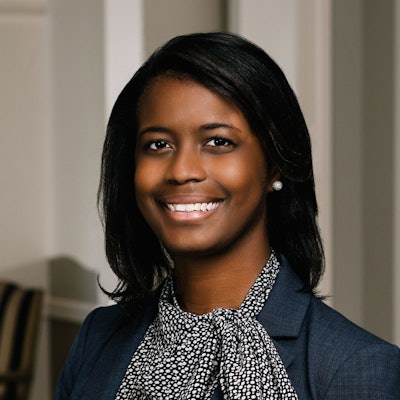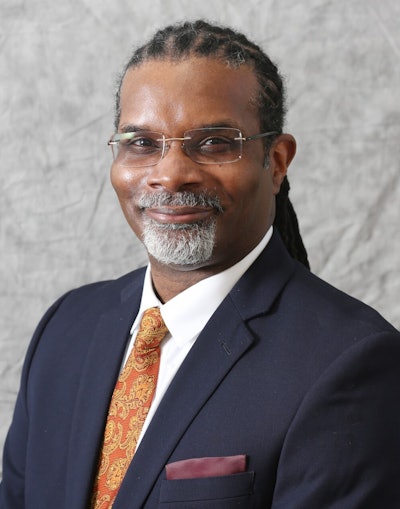Morehouse College’s Social Problems course typically fills up with freshman and sophomores who want to wrestle with some of the knottiest issues of our time, including interpersonal violence, political corruption, pollution, homelessness, and racial and ethnic conflict. It’s a challenging class that Dr. Kendrick Brown, Morehouse’s provost and senior vice president of academic affairs, describes as the best of what the school has to offer. But starting this fall, Social Problems will have a cohort of new enrollees: high school students from low-income backgrounds who may have never heard of Morehouse or even of HBCUs.
It's one of the new offerings coordinated by the National Education Equity Lab, an educational justice nonprofit that brings credit-bearing college courses into Title I and Title I-eligible high schools, at which large numbers of students come from families with little money. The courses are designed to be substantially similar to those offered on campuses: they’re taught by the same professors, who deliver lectures asynchronously via video conference, using the same materials and assignments. Grad students serve as teaching fellows, facilitating discussion sections and grading student work. Students have risen to the challenge, with 83% having passed their courses as of spring 2021, and many reporting a broadened sense of their college possibilities.
The initiative has grown rapidly since it started in 2019, offering a single Harvard course, Poetry in America: The City from Whitman to Hip-Hop, at 25 high schools in 11 cities. It now coordinates classes from over a dozen colleges and universities, including Yale, Stanford, and Wharton, at over 100 high schools. But as it looks to expand into every Title I high school in the United States, the Ed Equity Lab is placing a special emphasis a particular category of higher ed institution: HBCUs.
Although 90% of the high schoolers in the Ed Equity Lab’s program are students of color, roughly half of them had been unaware of HBCUs, according to a recent survey. The Lab is looking to change that. Morehouse is the most recent addition to the program, which has included Howard University since 2020 and Spelman College since 2022. More partnerships are currently being explored.
 Laura Moore, managing director of strategy and policy for the National Educational Equity Lab
Laura Moore, managing director of strategy and policy for the National Educational Equity Lab
“Our HBCU partners bring a really unique understanding of how our students have traditionally not been well-served by higher education, but also society more broadly,” she said. “I think they bring that ethos to their work.”
This is evident in the unique courses that they offer, such as Spelman’s class on the Education of Black Girls. The course traces schooling from pre-colonial West Africa to the present and covers the historical, political, and social factors that have affected the education of African American women.
“There’s an additional layer: for many students we’re talking specifically about their history,” said Moore. “A lot of the assignments will prompt students to think about their own identities, how they fit into this landscape.”
Students also benefit from exposure to HBCU staff from minoritized backgrounds. Graduate fellows, who are closer in age to the high school students, play a particularly important role.
“[It’s] powerful to learn from and work with adults who aren’t much older than these students as they think about what’s possible for them after high school,” said Moore. “There’s this additional resonance.”
In addition to the representational advantages, minoritized faculty may present material in a way to which students of color can more easily relate.
“It’s about seeing someone who’s using examples that make sense, that connect with you, who’s not just reflecting what you might typically encounter in other classes,” said Brown.
This ability to place information in a fuller historical context has long been a strength of HBCUs, according to Tina Gridiron, vice president at the ACT Center for Equity in Learning. An economics course from a Predominantly White Institution might give all the basic information, she said, but leave out the impacts of slavery, Jim Crow, or redlining.
“When you add HBCUs to the mix, you have opportunities to bring in rich historical data that you might not get from other institutional types,” she said.
 Dr. Kendrick Brown, provost and senior vice president of academic affairs at Morehouse College
Dr. Kendrick Brown, provost and senior vice president of academic affairs at Morehouse College
To Gridiron, HBCU involvement in the Ed Equity Lab’s initiative is a natural extension of what they’ve been doing all along.
“HBCUs were opened up to right the wrong of our national systems that created barriers to educational opportunity,” she said. “The National Education Equity Lab’s commitment to opportunity is right in line with why HBCUs were founded in the first place.”
Brown agreed, describing the initiative as perfectly aligned with Morehouse’s mission.
“We’re very much about bringing opportunities to young men in underserved areas,” he said. “I’m really hoping it fires the passion for education, gives an opportunity for students who are talented, students who are overlooked, to really show what they can do.”
Jon Edelman can be reached at [email protected]





















